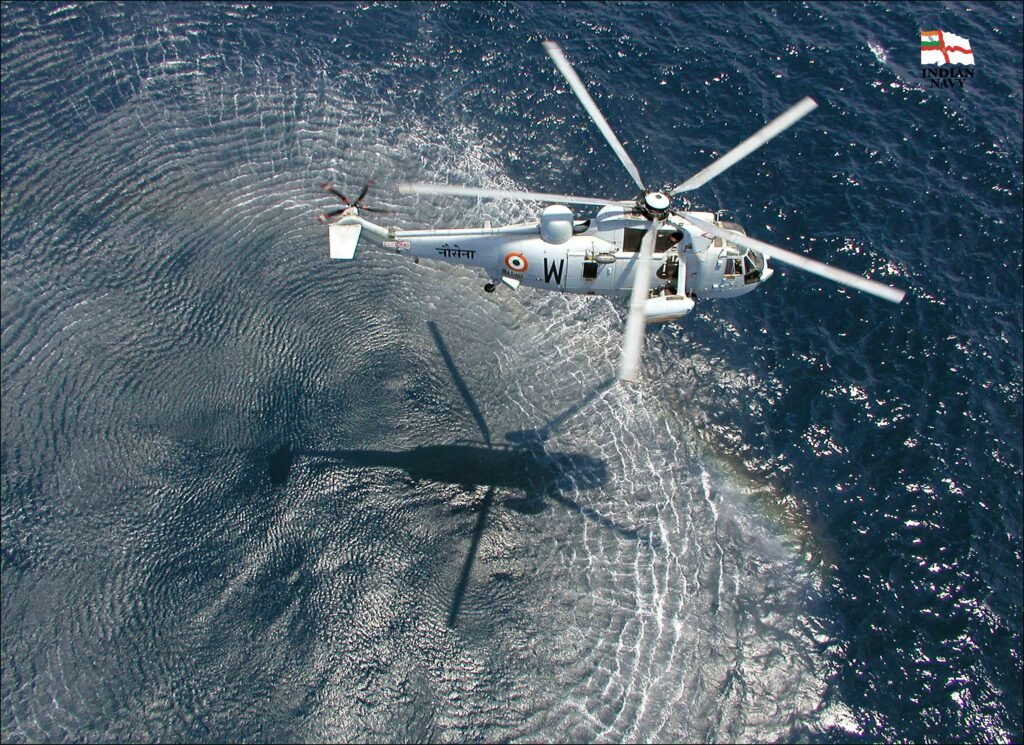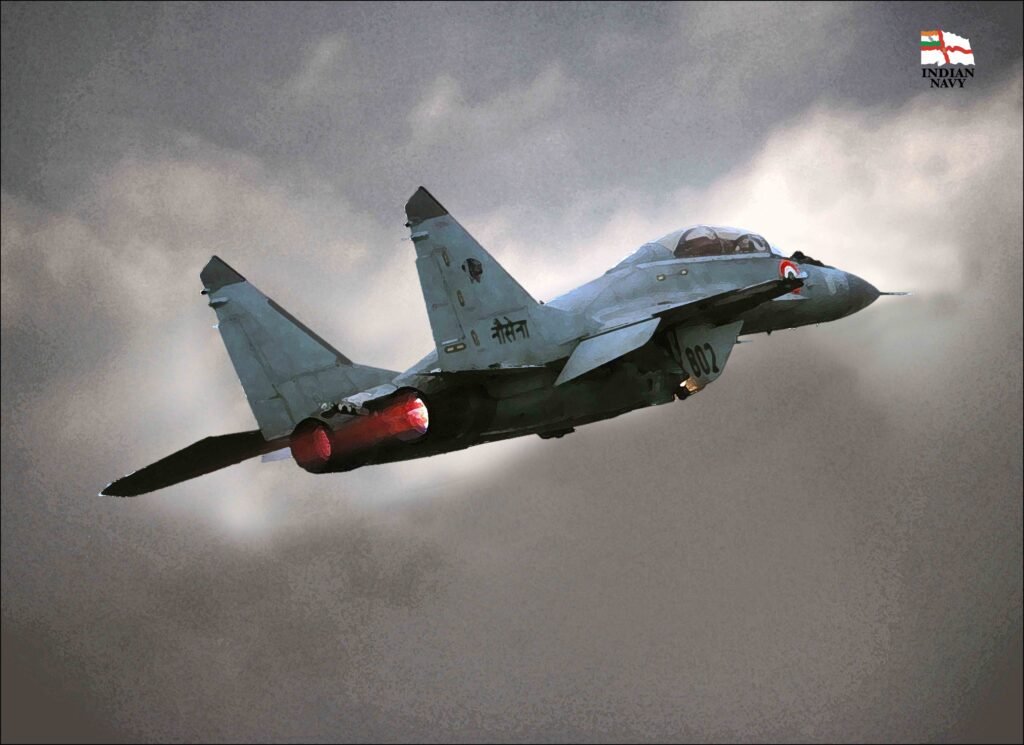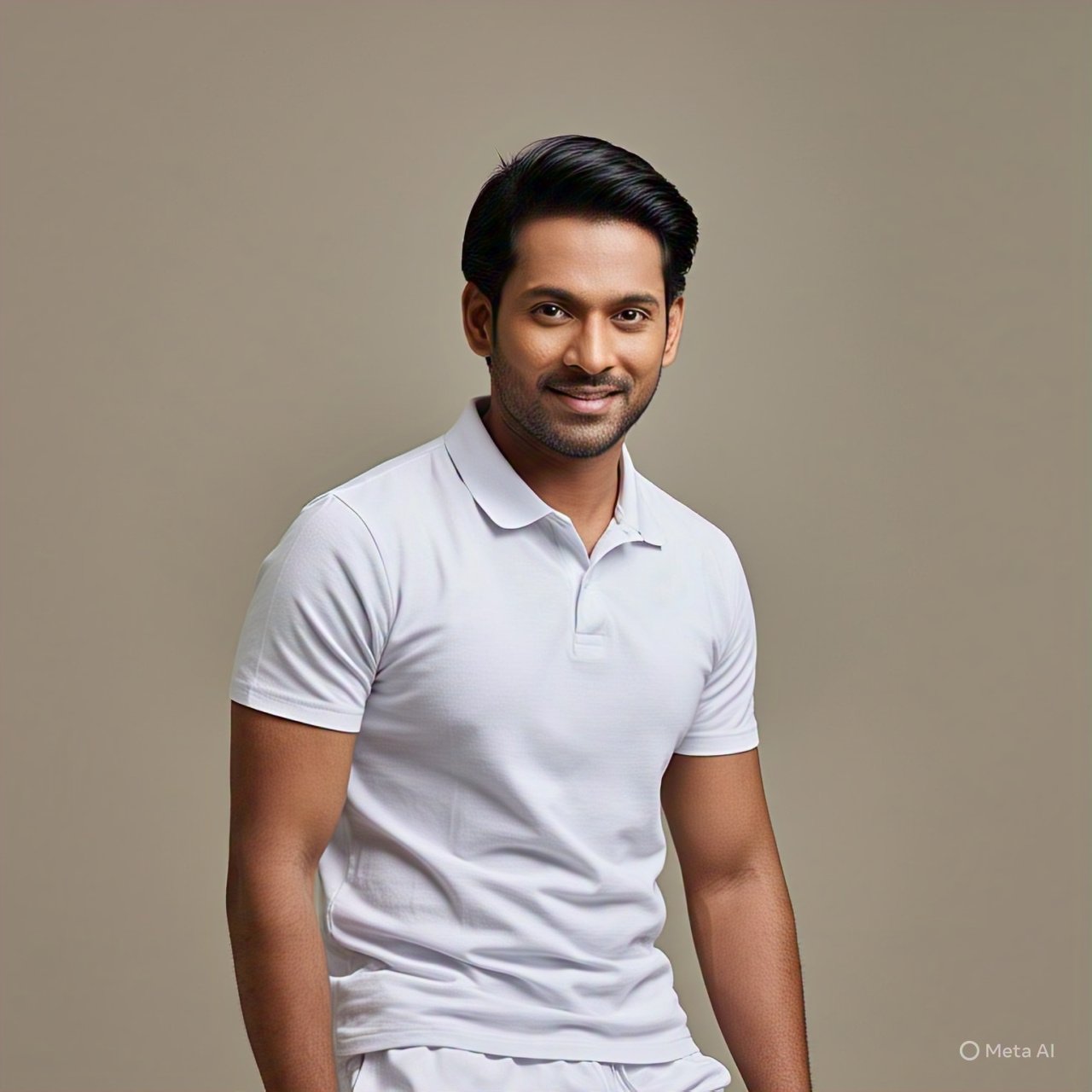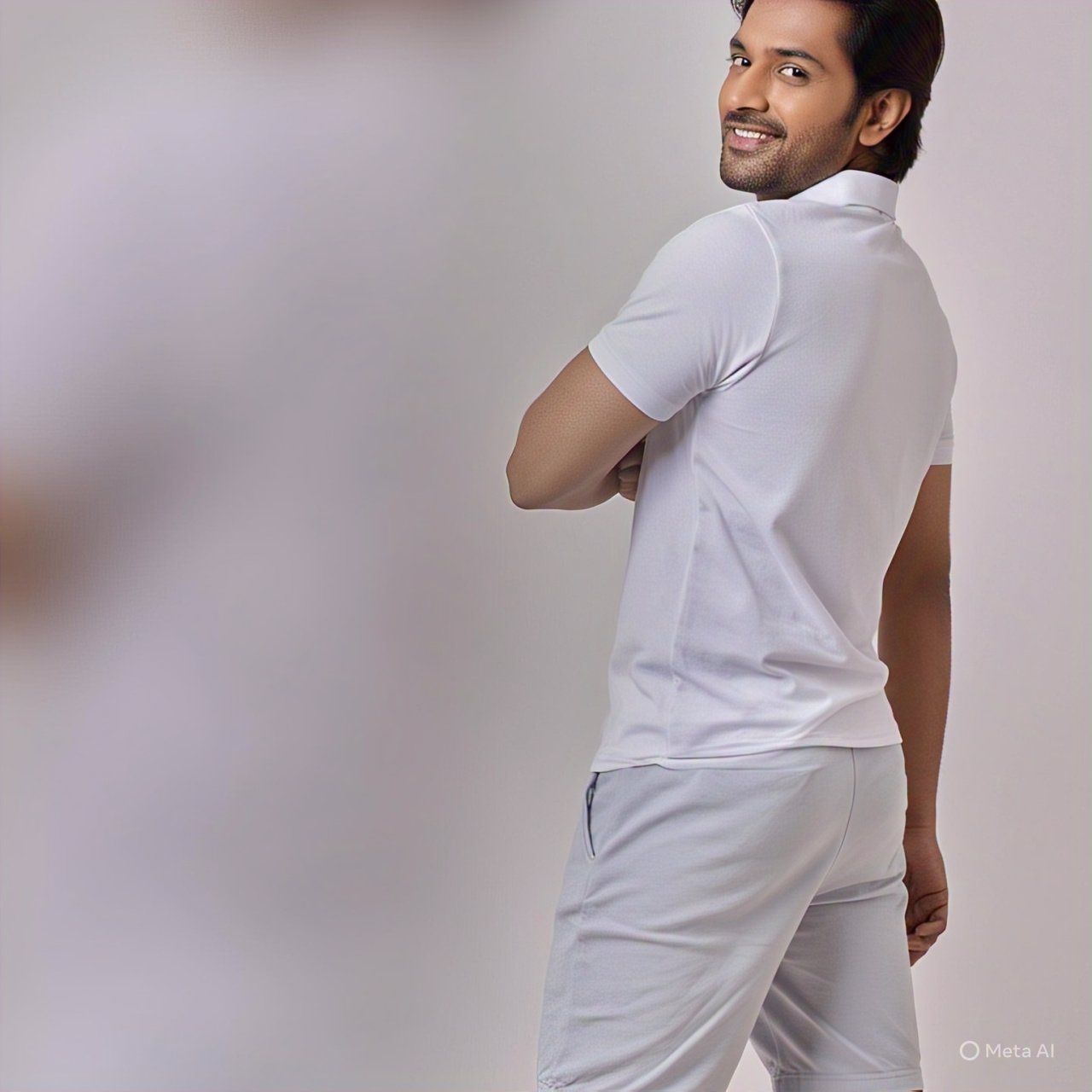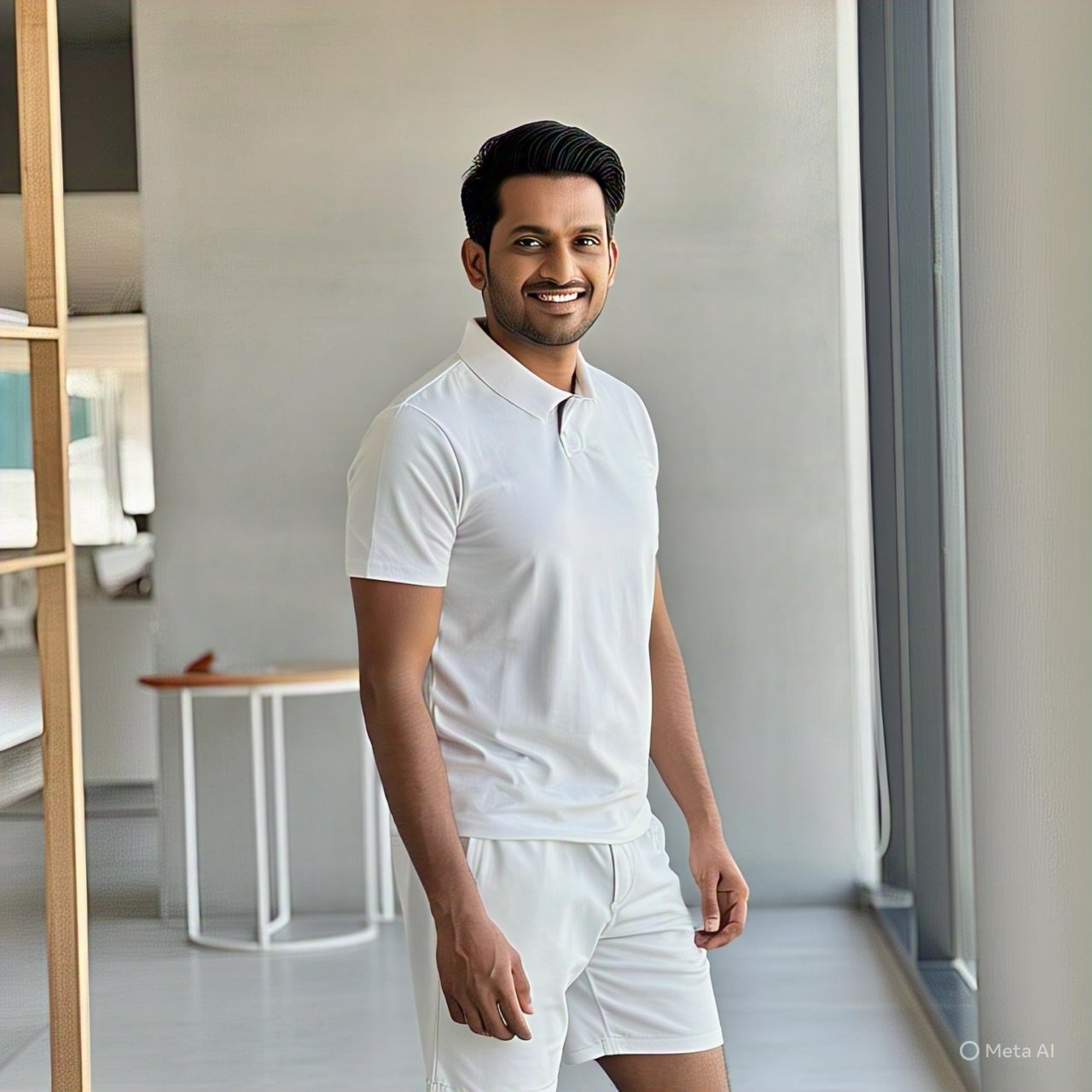Tanks in the Indian Armed Forces
Introduction
Tanks are the backbone of India’s armored warfare capability, especially crucial in plains, deserts, and high-altitude terrains like Ladakh. The Indian Army fields one of the largest and most diverse armored corps in the world, with a mix of indigenous and imported platforms, including modernization efforts for future combat scenarios.
1. Main Battle Tanks (MBTs)
T-90 Bhishma
- Origin: Russia (customized for India)
- Entered Service: Early 2000s
- Role: Primary MBT of the Indian Army
- Armament: 125mm smoothbore gun, anti-tank guided missiles (ATGMs), machine guns
- Features: Thermal imaging sights, ERA (Explosive Reactive Armor), night-fighting capabilities
- Number in Service: Over 1,200 with plans to increase further
Fun Fact: T-90 is assembled in India under license by the Heavy Vehicles Factory, Avadi.
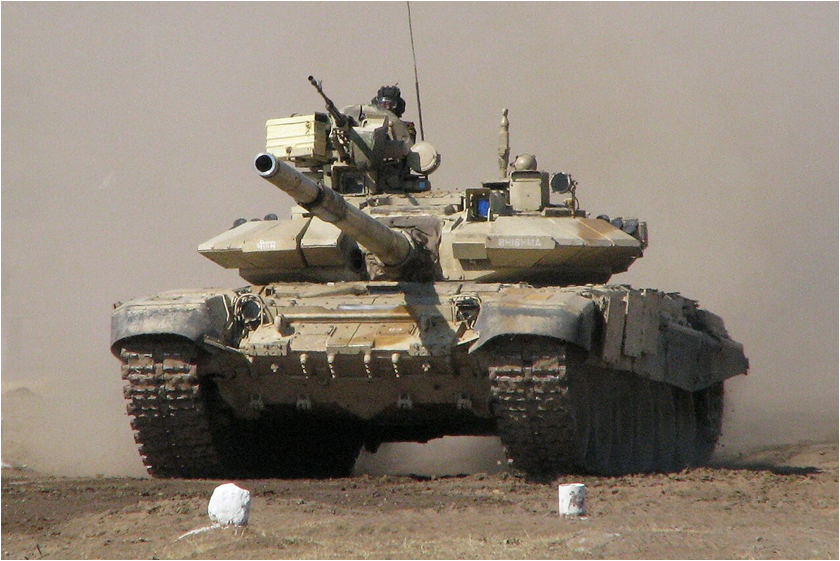
Arjun MBT (Mk I & Mk IA)
- Origin: Indigenous (DRDO)
- Type: Heavy tank
- Armament: 120mm rifled gun, Kanchan composite armor, advanced fire-control system
- Features: Indigenous engine, thermal sights, auto-target tracking
- Challenges: Heavier and bulkier than T-90; limited deployment in desert terrain
- Mk IA Version: Improved variant with over 70 upgrades, including better mobility and firepower
- Units: ~120 Mk I + 118 Mk IA ordered
Significance: Symbol of India’s indigenous tank-building capability.
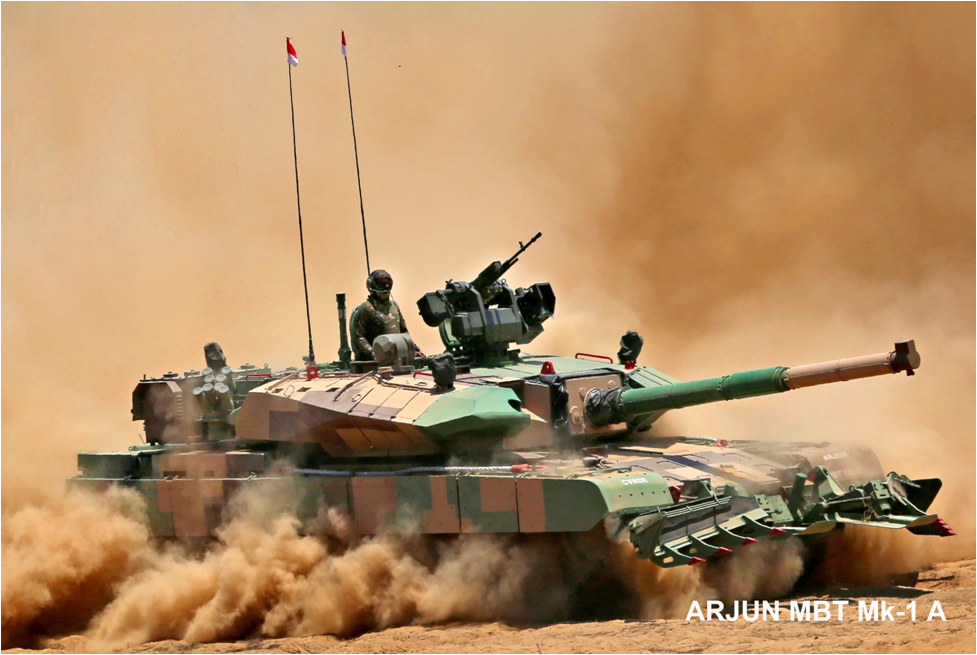
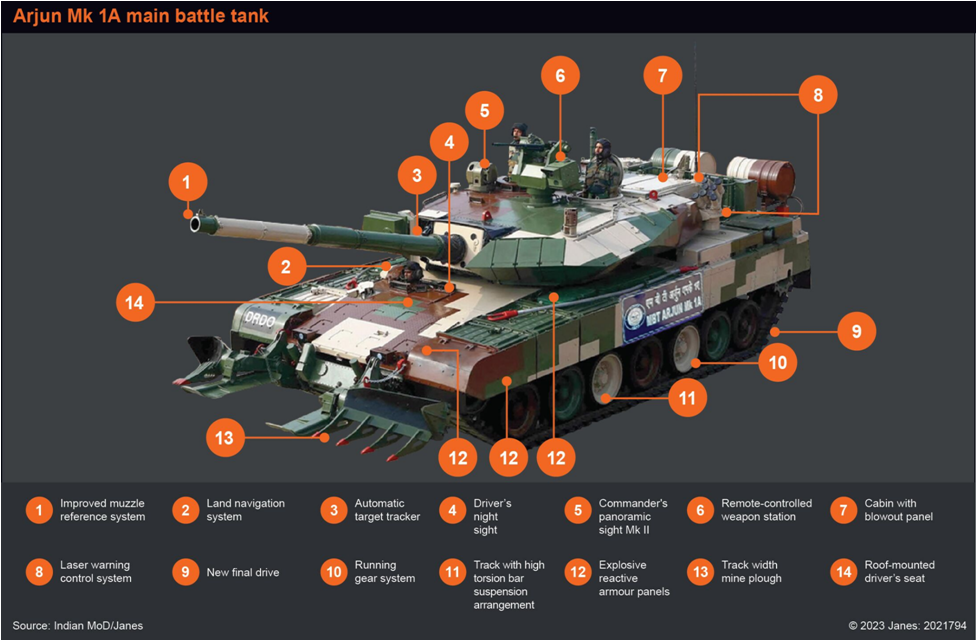
T-72 Ajeya
- Origin: Soviet Union
- Inducted: 1980s
- Armament: 125mm gun, ATGMs
- Features: Basic armor and night capability (upgraded versions with ERA and thermal sights)
- Status: Still forms a large part of the armored corps, though being gradually phased out or upgraded
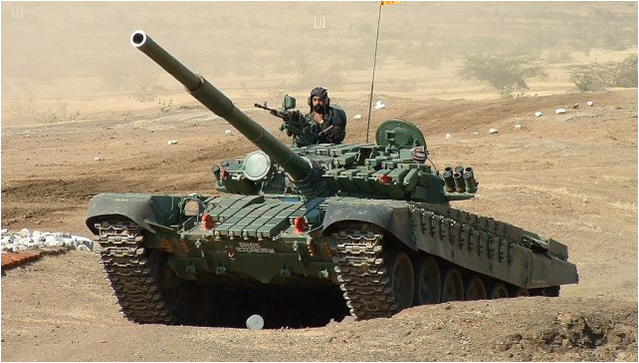
2. Light Tanks
Zorawar Light Tank (Under Development)
- Origin: Joint project by DRDO and L&T
- Purpose: Designed for high-altitude warfare, especially in Ladakh and Arunachal
- Weight: ~25 tons
- Features: Advanced mobility, drone integration, anti-tank missiles, active protection systems
- Reason: Need for a lightweight, agile platform in mountainous terrains where heavy MBTs struggle
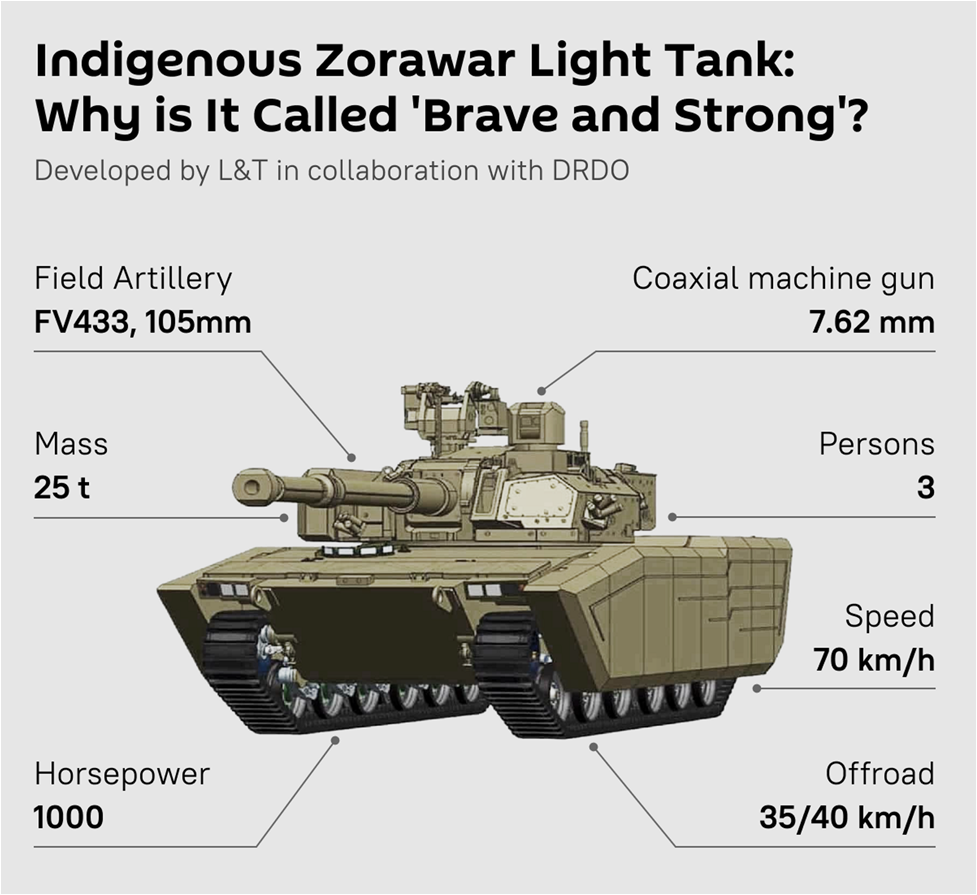
3. Armored Support & Combat Vehicles
BMP-2 “Sarath”
- Type: Infantry Fighting Vehicle (IFV)
- Role: Transports infantry with protection, fire support
- Armament: 30mm autocannon, ATGMs, machine guns
- Mobility: Amphibious, highly mobile
- Future Variant: BMP-2M upgrade with enhanced sensors and firepower
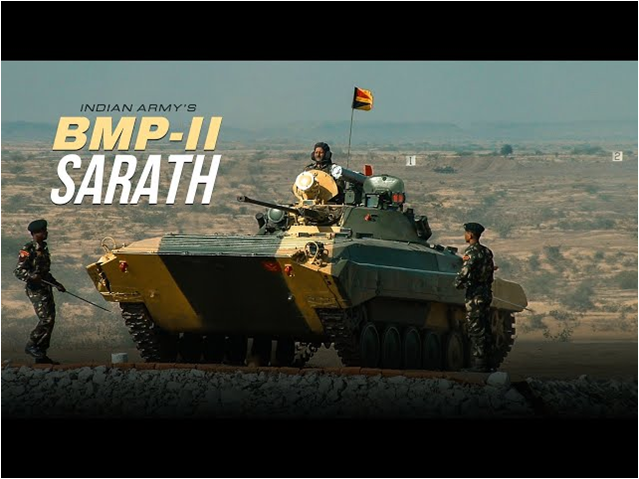
NAMICA (Nag Missile Carrier)
- Based On: BMP-2 chassis
- Armament: Nag anti-tank guided missiles
- Role: Tank destroyer with fire-and-forget missile capability
- Significance: 100% indigenous ATGM platform developed by DRDO
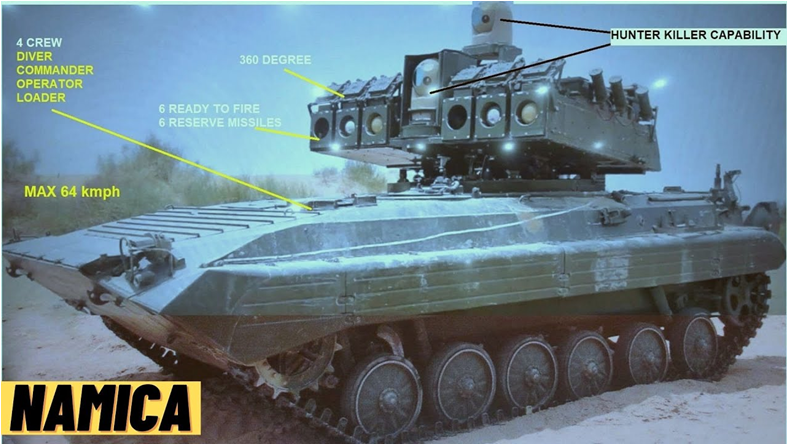
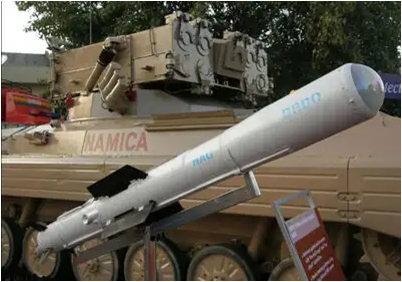
4. Tank Modernization Programs
- T-90 Upgrades: Integration of newer sensors, advanced ERA, thermal imaging, and communication suites
- Arjun Mk II / Mk 1A: Enhanced armor, FCS, and better mobility
- FRCV Program (Future Ready Combat Vehicle): Open tender for developing a next-gen MBT to replace T-72 fleet
- Active Protection Systems: Being considered for new and existing platforms to defeat modern threats like top-attack missiles and drones
5. Indigenous Weapons & Systems in Use
- DRDO-developed fire control systems
- Kanchan Armor – Indigenous composite armor used in Arjun
- Gun Launched Missiles (like LAHAT) – For firing ATGMs from tank barrels (in testing)
6. Tanks in Extreme Conditions
- Desert Warfare: T-90s and Arjun tanks operate in Rajasthan and Gujarat
- Mountain Warfare: India is now focusing on Zorawar light tanks for Ladakh-type terrain
- High-Altitude Training Zones: Leh, Sikkim, and Arunachal are prepared with tank training facilities for acclimatization and combat readiness
Conclusion
India’s armored might rests on a combination of T-90 Bhishma, indigenous Arjun tanks, and aging yet upgraded T-72s. With high-altitude warfare in focus and indigenous programs gaining pace, India is transitioning toward a future-ready, self-reliant armored corps built for diverse terrains and modern threats.

